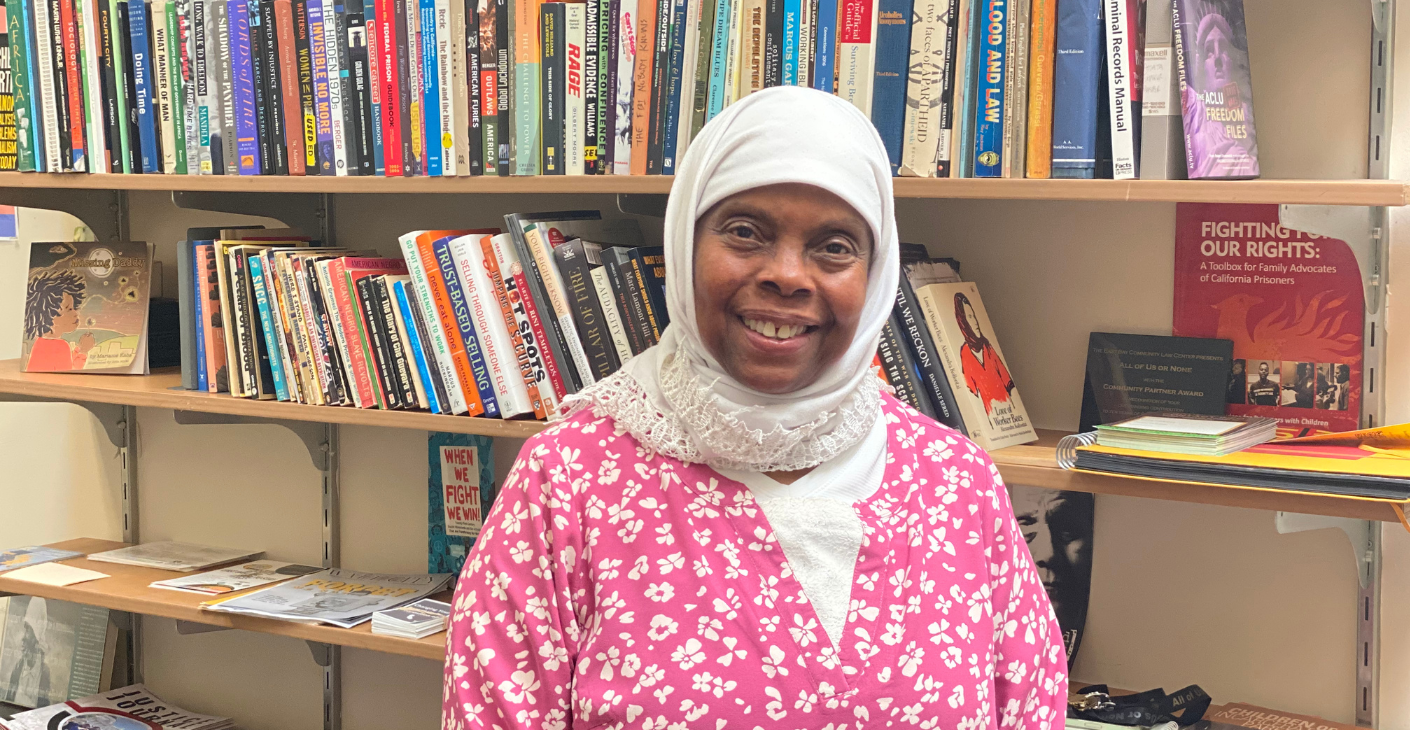Hamdiya Cooks-Abdullah says she was always a bit rebellious. Born and raised in San Bernardino, she was also aware of the limited career opportunities for young Black women. “It was a time when educated Black women couldn’t find a job other than cleaning peoples’ houses,” she says. “I was very aware of the difficulty we were having just trying to be successful as working class Black people.”
The administrative director for Legal Services for Prisoners with Children until her recent retirement, Cooks-Abdullah says she never imagined a career advocating for people who were formerly incarcerated.
At 15 years-old, she married, had a son, and worked as an X-ray technician for several years. Not long after, Cooks-Abdullah found herself incarcerated. While in prison, she became a Muslim, but quickly noticed that women were required to wear men’s clothes and were also not able to wear appropriate headgear. Soon after, she began fighting for the rights of women in prison to observe their religion.
In total, Cooks-Abdullah served 20 years in federal prison, with much of her incarceration spent at the Federal Correctional Institution for women in Dublin, CA. The years were harsh, particularly because she was separated from her son, who was being raised by her mother. Throughout the years, she talked to him every week, kept up with his school progress and report cards. The two remain close today.
While incarcerated, Cooks-Abdullah earned her A.A. and B.A. degrees. She took many classes, and sometimes taught computer skills to other people in prison. She was a part of a group called the Black Culture Workshop that would invite speakers from the outside to celebrate Black History Month with them in prison.
“That experience connecting with people on the outside – that was honestly what we lived for,” says Cooks-Abdullah. “That was how we were able to survive.”
After being released, Cooks-Abdullah was able to start a new life. She got a job as an intern coordinator at the then San Francisco-based Legal Services for Prisoners with Children (LSPC), which advocates for and provides support for incarcerated people. “Dorsey [Nunn] and Karen Shain were co-directors at the time, and gave me an opportunity to step into a position,” she recalls. “I will be eternally grateful.”
In her 21 years at LPSC, she’s also been involved in the sweeping changes that LPSC has helped made possible, such as the campaign to “ban the box,” changing the rights of pregnant women inside prisons, and ensuring that more people who’ve been impacted by the prison system have the voice to speak out.
This summer, at age 70, she retired as LSPC’s administrative director. Her colleagues say she will be missed. Mei-Lia Storelee, who works with Cooks-Abdullah, says she admires her. “I’ve just always felt comfortable going to [Cooks-Abdullah] with ideas,” she says. “She really just welcomed me.”
But Cooks-Abdullah isn’t done yet. Now retired, she hopes to focus on a related passion of hers: helping recently released women through a safe house, a supportive home for formerly incarcerated women, in a home that she owns in Arizona.
To anyone who has experienced trauma, she says, “Never give up on yourself because you can succeed with whatever you like to do in life, in spite of our past, in spite of our traumas. There are people out there that … want to work together to create a new world for those of us who didn’t have that opportunity. ”
By Momo Chang, SFF consultant


